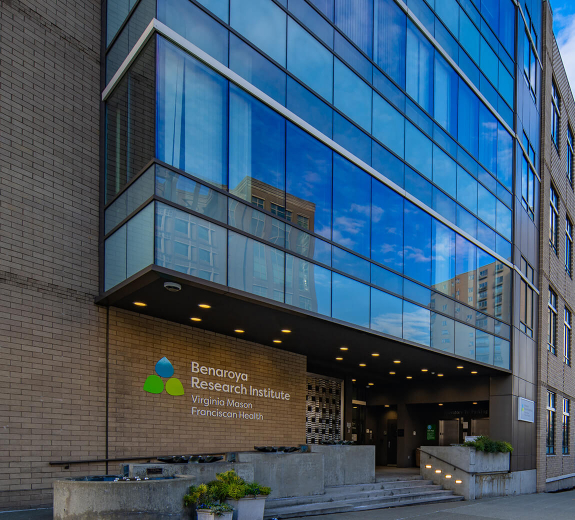Studies in the lab of Steven F. Ziegler, PhD, at Benaroya Research Institute (BRI) found that a specific cytokine could serve as a biomarker heralding the development of colon cancer – and holds promise as a therapeutic target to fight colorectal cancers.
The study, entitled Emerging role for thymic stromal lymphopoietin–responsive regulatory T cells in colorectal cancer progression in humans and mice was published in the May 18 edition of Science Translational Medicine.
In the study, the team found they could inhibit colorectal tumors by blocking TSLP, which suggests that the cytokine may control the progression of the cancer through the regulation of T cell function.
Additionally, tumor-specific regulatory T cells (Tregs) expressing the receptor for TSLP were found in the peripheral blood of colon cancer patients but not in normal control subjects.
According to the author, these are new findings from a hypothesis that TSLP could be involved in colon cancer based on its role with the colonic epithelium, or lining. Evidence supports that screening for TSLP in the blood could indicate the development of colon cancer, which would make this cytokine a biomarker for the disease.
"We got into this work because we saw TSLP played an important role in breast cancer and we wondered if there were other cancers it might be involved with," Dr. Ziegler said. "We found that TSLP is critical for tumor progression in the colon, and if you either block the cytokine, or prevent the regulatory T cell from responding to the cytokine, the tumors go away or get very small."
Only around 5% of colon cancer patients respond to currently available checkpoint therapies, but the study data suggest that TSLP blockade could provide a biologic and promising new therapy, Dr. Ziegler said.
"These findings are relevant to the scientific community because they suggest a novel role for TSLP, but it’s important for oncologists and their patients because they may well provide a new avenue for therapy," he said.
According to Dr. Ziegler, an antibody against human TSLP was recently approved for treatment of asthma, "so there is an approved drug out there that can block the cytokine. Now we’re seeing there’s an opportunity to use it in other indications like colon cancer," he said.



